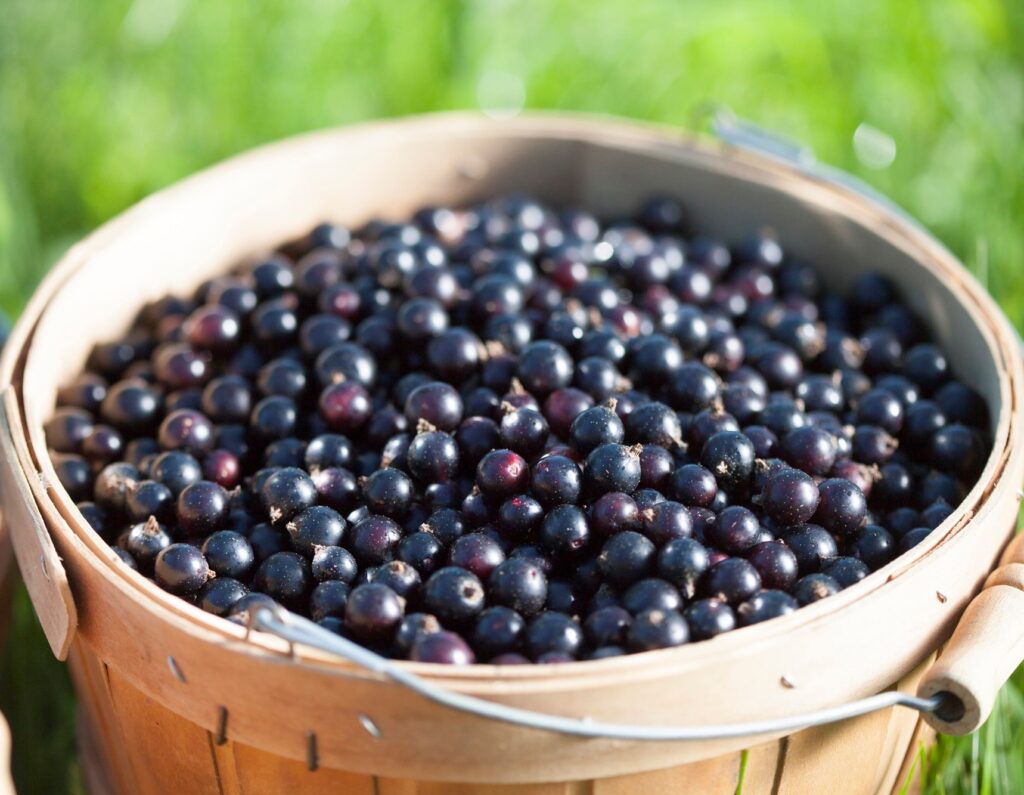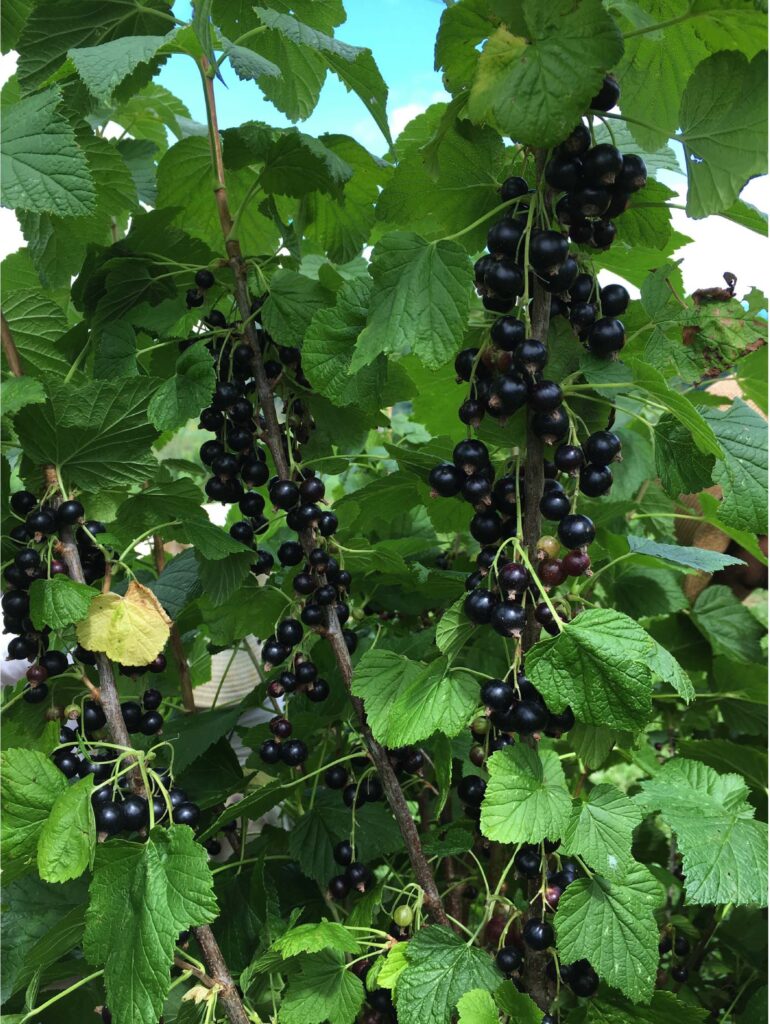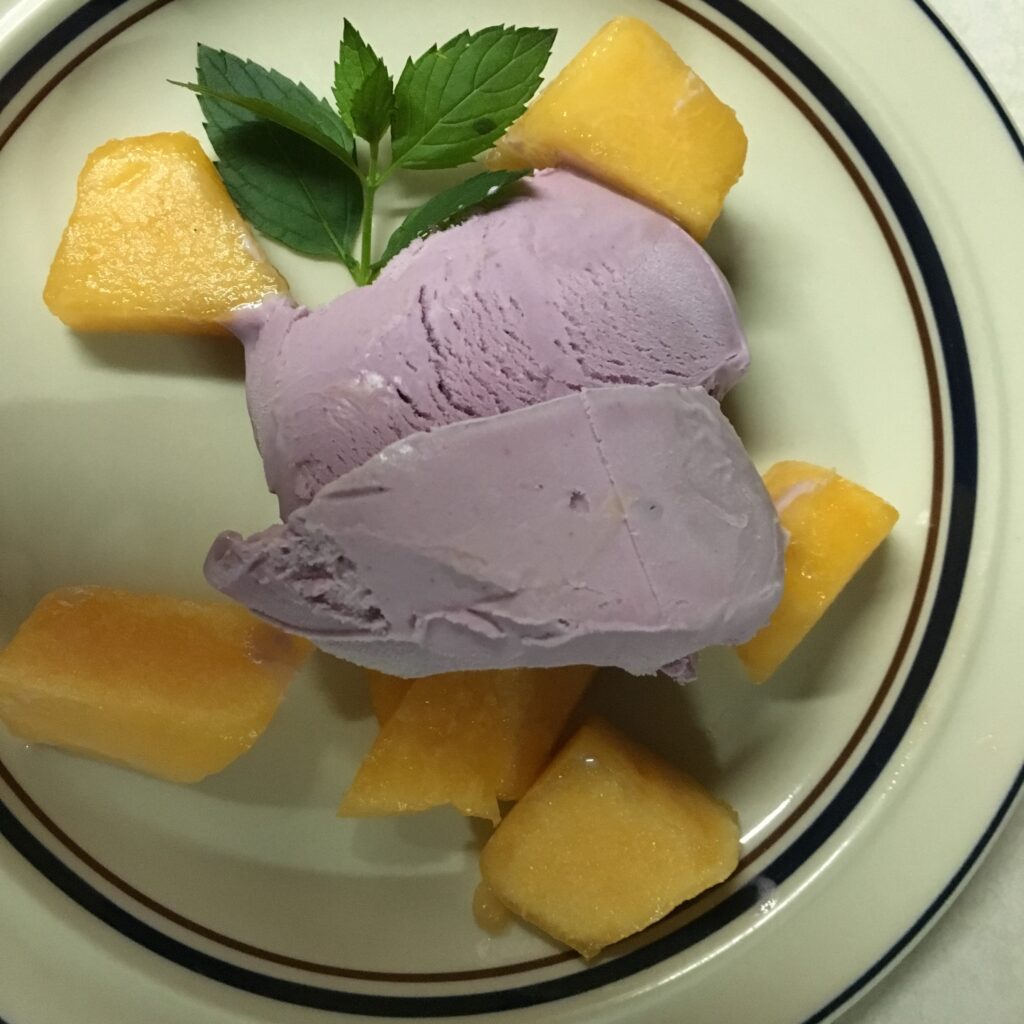
About Black Currants
Black Currant (Ribes nigrum) is a cold-climate shrub native to northern Europe and Asia that has been in cultivation for nearly 500 years. The flavor profile of the black currant has been described as earthy, smokey, savory, herbaceous, and floral. They are unique! Widely grown throughout Europe, black currants are lesser known in the United States, largely due to a ban on currant farming in the early 1900s when white pine blister rust, vectored by black currants, threatened the U.S. logging industry. Although the federal ban was relegated to state jurisdiction in the 1960s, black currants have yet to gain the popularity they boast in Europe. The Zante “currants” sold in grocery stores are actually a variety of small, seedless grapes. We only grow varieties of black currants that are resistant to white pine blister rust and powdery mildew. These include Titania, Crusader, and Minaj Smyriou. We obtained the original nursery stock from St Lawrence Nurseries in upstate New York and from Whitman Farms in Oregon.
Health Benefits
Black currants are packed with antioxidants and vitamin C. Research led by the Scottish Crop Research Institute has confirmed that black currants have higher levels of antioxidants and total vitamins than most other fruit, including blueberries and pomegranates. The type of antioxidant that black currants have is called anthocyanins, which has antidiabetic, anticancer, anti-inflammatory, and antimicrobial effects. Research has shown black currants help prevent heart disease, cancer, Alzheimer’s disease , diabetes, and high blood pressure (Tufts University Study 2006). Black currant seeds are rich in gamma-linoleic acid (GLA), which is believed to reduce inflammation of arthritis, lupus, and other inflammatory diseases. GLA also inhibits blood clotting and thus may protect against heart attacks and strokes. The leaves and berries also contain substances that have anti-fungal and antibacterial properties and is effective in treating diarrhea cause by E. coli.
A tablespoon of black currants could aid with eye function for those who use a computer regularly and they also have been shown to improve mental performance. Black currant extract promotes gut health and reduces markers for colon cancer. Black currant has been shown to promote kidney health and reduce the occurrence of kidney stones. You can learn more by reading the study.


Using Black Currants
The berries make excellent jams, juices, wines, glazes, and sauces. Black currant jam is excellent on cheesecake, warm brie cheese, or panna cotta! Blue Heron Coffeehouse has made a glaze with our black currants over their cheesecake for our Blue Fruit Fest, and it is absolutely delicious.
Black currants are great in smoothies and oatmeal! It is a flavorful substitute to cranberry sauce. Black currant can be combined with other fruits to make delicious tarts and pies. Black currants are also delicious in savory dishes, like schnitzel and sauces to accompany meat and fish.
Cordials made from black currants are very popular in Europe. It is used as a liqueur in drinks or taken as medicine for various ailments. Herbal extracts and powders can also be used for the multitude of health benefits offered by black currants. Creme de cassis is a liqueur made from black currants!
Jams we make that use black currants are Black Currant (our tartest) and Blue Currant (blueberries and black currants).
